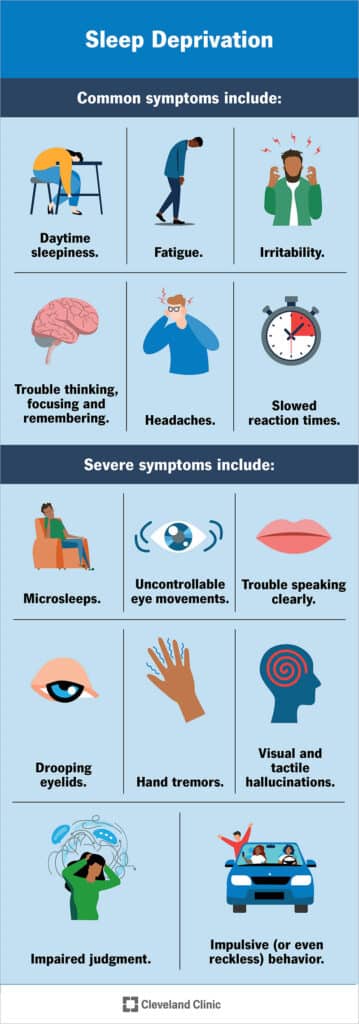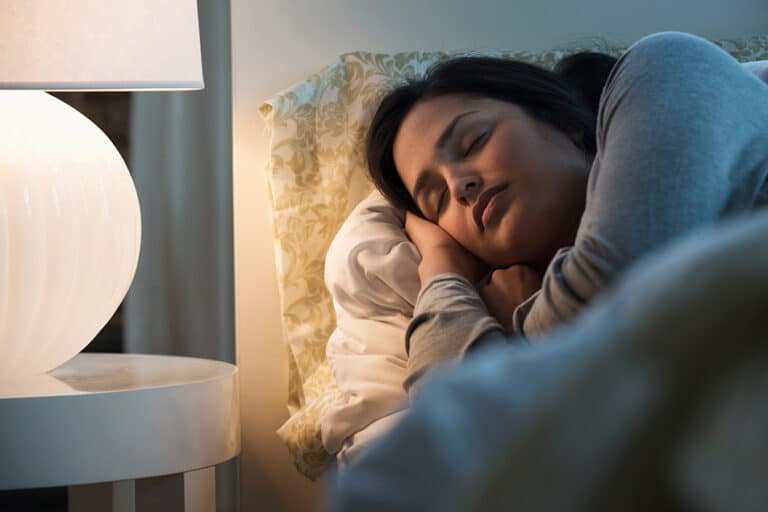We’ve all had those nights when sleep seems elusive, and the alarm clock rings way too soon. You wake up feeling groggy, irritable, and craving an extra-large coffee. But what if missing out on sleep does more than just leave you cranky? What if it actually makes you sick?
The connection between sleep and your health runs deeper than most of us realize. Sleep is essential for maintaining a healthy immune system, recovering from illnesses, and preventing long-term health problems. In this comprehensive guide, we’ll explore how sleep impacts your well-being, why skimping on sleep can make you sick, and what you can do to prioritize quality rest.
Why Sleep is Essential for Good Health

Sleep is not just about rest, it’s about restoration. During sleep, your body engages in a range of critical processes that support physical and mental health. These include:
- Immune system support: Sleep allows your body to produce infection-fighting substances like cytokines and white blood cells, which are essential for battling viruses and bacteria.
- Cellular repair: Your body heals tissues, muscles, and blood vessels during sleep.
- Cognitive function: Sleep consolidates memories, enhances learning, and improves focus.
- Hormonal balance: Sleep regulates hormones that control appetite, stress, and growth.
Without adequate sleep, these processes are disrupted, which can leave you more vulnerable to illnesses and chronic health conditions.
The Link Between Sleep and Illness
Research has repeatedly shown that insufficient sleep can have both short-term and long-term health consequences. Let’s break it down:
| Health Concern | How Lack of Sleep Contributes |
|---|---|
| Weakened Immune System | Fewer cytokines and white blood cells mean your body is less equipped to fight off infections. |
| Increased Risk of Chronic Illness | Sleep deprivation raises the risk of diabetes, obesity, and cardiovascular disease. |
| Slower Recovery | When you’re sick, your body needs sleep to heal effectively. |
| Poor Vaccine Response | Studies show that insufficient sleep weakens the immune response to vaccines. |
Immune System Vulnerability
When you don’t get enough sleep, your immune system takes a significant hit. Cytokines, proteins that help combat inflammation and infection, are produced during sleep. A lack of sleep means fewer cytokines, leaving you vulnerable to colds, the flu, and other illnesses.
Chronic Conditions and Sleep
Sleep deprivation has been linked to a host of chronic health problems, including:
- Heart disease: Poor sleep is associated with high blood pressure, a key risk factor for cardiovascular issues.
- Type 2 diabetes: Sleep impacts insulin sensitivity and blood sugar regulation.
- Obesity: Sleep deprivation affects hormones that control hunger, leading to overeating.
Impact on Mental Health
A lack of sleep can also exacerbate mental health conditions such as anxiety, depression, and mood disorders. Chronic sleep deprivation can lead to impaired decision-making, increased irritability, and even hallucinations in severe cases.
How Lack of Sleep Affects Your Body
The impact of sleep deprivation extends across multiple systems in your body:
1. Immune System
- Reduced cytokines: These proteins help combat inflammation and infection. Without them, your body struggles to fend off illnesses.
- Fewer white blood cells: Sleep deprivation lowers your body’s ability to produce these infection-fighting cells.
2. Cardiovascular System
- Increased blood pressure: Poor sleep disrupts the regulation of stress hormones, which can lead to hypertension.
- Elevated heart disease risk: Chronic sleep deprivation has been linked to heart attacks and strokes.
3. Digestive System
- Appetite hormones: Sleep deprivation decreases leptin (the hormone that signals fullness) and increases ghrelin (the hormone that triggers hunger), which can lead to overeating.
- Weight gain: Poor sleep is associated with obesity due to hormonal imbalances and reduced energy for exercise.
4. Brain and Mental Health
- Cognitive decline: Lack of sleep affects memory, learning, and decision-making.
- Mood swings: Chronic sleep deprivation is linked to anxiety, depression, and irritability.
5. Endocrine System
- Hormonal disruption: Sleep is essential for the production of growth hormones and testosterone, particularly in children and young adults.
Tips for Better Sleep
Improving your sleep habits can have a profound impact on your overall health. Here are some practical tips:
1. Create a Relaxing Sleep Environment
- Dark and cool: Keep your bedroom dark and at a comfortable temperature.
- Noise reduction: Use white noise machines or earplugs to block out disturbances.
- Comfortable bedding: Invest in a good mattress and pillows.
2. Maintain a Consistent Schedule
- Go to bed and wake up at the same time every day, even on weekends.
- Avoid napping late in the day, which can disrupt your nighttime sleep.
3. Practice Good Sleep Hygiene
- Limit screen time: Blue light from phones and tablets can interfere with melatonin production.
- Avoid stimulants: Stay away from caffeine and nicotine in the afternoon and evening.
- Wind down: Engage in calming activities like reading, meditation, or light stretching before bed.
4. Address Underlying Issues
- If you suspect you have a sleep disorder like insomnia or sleep apnea, consult a healthcare provider.
- Manage stress with techniques like yoga, deep breathing, or therapy.
5. Consider Your Diet
- Avoid heavy meals and alcohol close to bedtime.
- Opt for light, sleep-promoting snacks like a banana or a handful of almonds.
Common Sleep Disorders and Their Impact
Some sleep problems go beyond poor habits and require medical attention.
1. Insomnia
- What it is: Difficulty falling or staying asleep.
- Impact: Chronic fatigue, irritability, and increased risk of mental health issues.
- Solution: Cognitive Behavioral Therapy for Insomnia (CBT-I) and relaxation techniques.
2. Sleep Apnea
- What it is: A condition where breathing repeatedly stops and starts during sleep.
- Impact: Disrupted sleep cycles, increased risk of heart disease.
- Solution: CPAP machines, weight management, and surgery in severe cases.
3. Restless Leg Syndrome (RLS)
- What it is: A tingling or uncomfortable sensation in the legs that creates an urge to move them.
- Impact: Difficulty falling asleep, frequent awakenings.
- Solution: Lifestyle changes, medications, and compression devices.
FAQs
1. Can naps help if I don’t sleep well at night?
Short naps (15–30 minutes) can help in the short term, but they’re not a substitute for consistent, quality nighttime sleep.
2. Is it dangerous to oversleep?
Sleeping more than 9–10 hours regularly can indicate poor sleep quality or underlying health issues.
3. Should I see a doctor for sleep problems?
Yes, especially if poor sleep is affecting your daily life or if you suspect a sleep disorder.
Conclusion
Sleep is not just a luxury, it’s a necessity. It strengthens your immune system, supports mental health, and protects you from chronic illnesses. If you’re not getting enough sleep, it’s time to make it a priority.
Whether it’s sticking to a bedtime routine, creating a better sleep environment, or consulting a healthcare provider, small changes can lead to big improvements in your health.
So tonight, put your phone down, relax, and give your body the rest it deserves. After all, a good night’s sleep is the foundation for a healthier, happier life.
References
- Cleveland Clinic: “How Sleep Impacts Your Immune System.”
- Mayo Clinic: “The Importance of Sleep for Overall Health.”
- National Sleep Foundation: “Understanding Sleep Cycles and Quality.”
- Healthline: “Effects of Sleep Deprivation on the Body.”
- CDC: “Sleep and Chronic Disease.”


